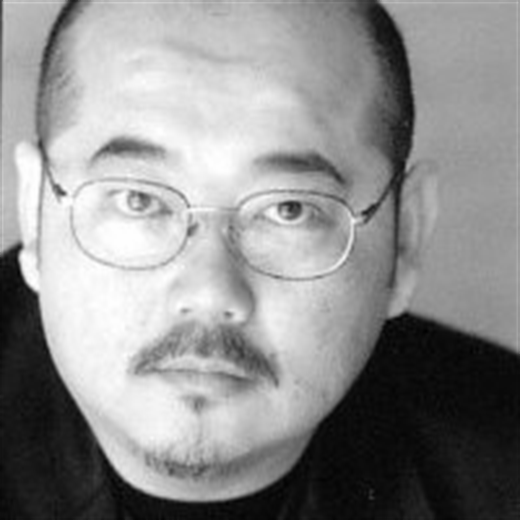West of Weird
Karen Thompson

In West of Weird, Harrison Cheung, above, could have followed the storyline of a boy seeking adoption with predicable deep introspection tied up with politically correct racial differences. Instead, in the protagonist Charlie, a 15 year old who is, if not troublesome, then certainly troubled, we get a fresh take and some valuable perspective on a generation not often recognised for their desire to be accepted.
Although not an orphan, Charlie, now of an age where he clearly realises his chances of adoption are slim, still holds out hope to belong rather than continue on the seemingly endless procession of foster homes. He also realises that his chances became somewhat slimmer after he became notorious for his involvement in a situation which he refers to as 'The Incident.'
His observations and clarity of thought often reflect those of a philosophising adult, yet he introduces us, tentatively, to the traumas in his life, by way of his constant nightmares and fears of Tsunamis, earthquakes and flesh eating zombies.
Charlie also has a vision of his perfect family, not least in that he wants a father figure who, at the very least, resembles The Rock, takes him to ball games and teaches him stuff. The surprise is that when someone finally shows an interest they couldn't be further from the perfect image: Michael is not only a single man, but an American Chinese with a strong interest in preserving his heritage. Here, Cheung could have given us what we might have come to expect, a gay man wanting to adopt, but instead he provides us simply with a man who, after a failed marriage, still wants to be a dad. And Michael, like Charlie, sees the chance of that slipping away as he ages.
Clearly, and despite Charlie's desperation, both parties have their doubts. Charlie has lived on the shabbier side of the tracks when it comes to lifestyles, compared to Michael who has a pristine apartment in one of the more affluent areas of California. The initial story is a will-they, won't-they, without the romantic twist. Won't they seems to be more likely when Charlie is introduced to his prospective grandparents who are traditional Chinese and fiercely protective of their heritage. If there is any racial tension in Cheung's story, then surely this is from whence it evolved. Charlie is clearly unconcerned about any possible cultural differences. He could give the adults a lesson or two in narrowing the racial divide. For example, he learns early on in his visits to Michael's parents that socks are a prerequisite because his oversized western feet don't slip easily into slippers provided for guests and going barefoot is a no-no, which he accepts without a qualm.
Yet despite some initial, slight misgivings the two are united and, without option, move to Austin in Texas, which is where we learn that Weird is the thing to be and California is West of it. Here we see the relationship, glitches included, develop into one, which ultimately turns out to be Charlie, that there can be more than one perfect vision of both family and father.
Cheung has done a marvellous job in both storyline and character development. There is not second when you fail to believe in, and picture, Charlie. Although initially you might concern yourself as to where the story is going, indeed sometimes you think it has nowhere to go except one direction; then Cheung throws a curveball that makes you realise it is often the little things in life, which are important. Cheung doesn't set out to shock; he doesn't set out to thrust a belief or concept down the reader's throat. He brings together two culturally distinct parties and shows us how each can be accepting of the other outside of their developed norms. And he does this in a way, which pleasantly carries the reader through the pages without effort.
If I had a criticism, then it would be that the climax came too quickly and was resolved too soon in contrast to the steady pace of the rest of the book. Yet even so, it didn't leave a feeling of dis-satisfaction, simply that he could have made a little more of the tension.
Cheung has written a book that provides not only a good read. Without pandering to what we might expect the mainstream demands, either in respect of traumas or stereotypes, he lets us take a peek inside the mind of a 'troubled teenager,' which isn't nearly as murky as you might suspect, and also gives us a little food for thought when it comes to racial integration. Essentially though, this book is about relationships and love. Cheung puts before us the evidence that sometimes what we wish for is not all it might appear.
Click here to buy West of Weird, in various formats, at a special price.
Karen Thompson is a writer and editor living in Portugal. She also finds time to shepherd Shetland sheep.
Click above to tell a friend about this article.
Recommended
- David Simmonds
- The Right Candidate
- Thick and Quick
- Tempest at a Tea Party

- Sjef Frenken
- Test Your Bridge
- Apparel
- Je Regrette

- Jennifer Flaten
- Oktoberfest
- Mysophobia
- Happy Birthday!

- M Alan Roberts
- Sea Stories 2
- My Bitter Half
- Freedom

Recommended
- Matt Seinberg
- Red Velvet Cupcakes
- Lifes Little Lunacies
- Shopping & Technology

- Streeter Click
- Funny Business
- WBZ, 10 January 1973
- Phillip Marlow: radio detective

- JR Hafer
- Scott Muni
- Rosko
- Popcorn Sutton

Recommended
- AJ Robinson
- A Pox on Our Houses
- Finding the Idea
- Stressful Summer

- Jane Doe
- Buying an Amp
- Del Shannon "Runaway"
- Top Gear

- M Adam Roberts
- In the Subconscious
- A Woman
- No Greater Love

- Ricardo Teixeira
- There is a Light
- The Future
- Harmony



